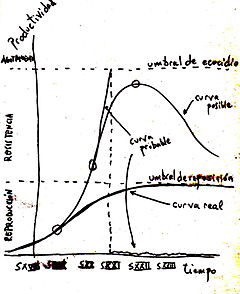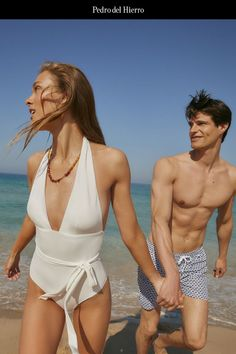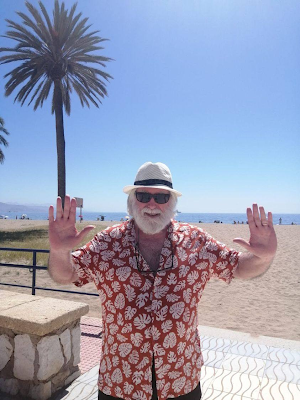¡REBALAE/LITORAL MAGALEÑO DEL ALBORÁN, PLAYAS DEL SAN ANDRES, LA MISERICORDIA, MI SEGUNDA KAI",...¡
- lukymlg
- 29 jul 2022
- 15 Min. de lectura
XXX.- :
Sostenibilidad en Amazon - Libros a precios bajos https://www.amazon.es/sostenibilidad AnuncioEnvío gratis en libros desde 19 € Prueba Prime gratis · Lee opiniones de clients · Nuevas ofertas cada día
filosofiaprolets-xxi-xxii.blogspot.com · ago. 30, 2021 CUADERNO DE SOSTENIBILIDAD Y SOCIEDAD (*) - Blogger cuaderno de sostenibilidad y sociedad, sostenibilidad de la humanidad, segunda ediciÓn ¡¡ >> una guÍa de teorÍa prolets polÍtica de socialismo cientifico prolets, de "comunismo proletario https://filosofiaprolets-xxi-xxii.blogspot.com/2021/08/cuaderno-de-sostenibilidad-y... Comentarios
File:Cuaderno de Sostenibilidad y Sociedad.pdf https://commons.wikimedia.org/wiki/File:Cuaderno_de_Sostenibilidad_y... File:Cuaderno de Sostenibilidad y Sociedad.pdf. From Wikimedia Commons, the free media repository. Jump to navigation Jump to search. File; File history; File usage on Commons; Metadata; Size of this JPG preview of this PDF file: 423 × …

Archivo:Cuaderno de Sostenibilidad y Sociedad.pdf https://es.wikipedia.org/wiki/Archivo:Cuaderno_de_Sostenibilidad_y_Sociedad.pdf Archivo:Cuaderno de Sostenibilidad y Sociedad.pdf. Tamaño de esta previsualización JPG del archivo PDF: 423 × 599 píxeles. Otras resoluciones: 169 × 240 píxeles · 339 × 480 píxeles · 542 × 768 píxeles · 1239 × 1754 píxeles. Este es un archivo de Wikimedia Commons, un depósito de contenido libre hospedado por la Fundación Wikimedia.
Cuaderno de Comercio y Sostenibilidad https://negociosostenible.camaravalencia.com/wp-content/uploads/2022/... · Archivo PDF Cuaderno de Comercio y Sostenibilidad
View this email in your browserThursday 28 July 2022
Hello Nature readers, Today we hear about South Korea’s first Moon mission, discover that AI has predicted the 3D shape of nearly every known protein and find out how humans evolved the ability to digest milk.
Danuri will use multiple scientific instruments to probe properties of the Moon. (Credit: NASA)
By this time next week, South Korea’s first lunar probe will be on its way to the Moon. The probe, named Danuri, which means ‘enjoy the Moon’, should arrive at its destination by mid-December and orbit for a year. Researchers hope that the craft will find hidden sources of water and ice and shed light on the Moon’s ancient magnetism as well as the ‘fairy castles’ of dust sprinkled across its surface. “Everybody is so happy and excited,” says planetary geoscientist Kyeong-ja Kim.
Determining the 3D shape of almost any protein known to science will soon be as simple as typing in a Google search. Researchers have used the revolutionary artificial-intelligence (AI) network AlphaFold to predict the structures of some 200 million proteins from one million species, covering nearly every known protein on the planet. The data will be uploaded to a free database. “It’s going to be an awesome resource,” says computational biologist Eduard Porta Pardo.
The burning of fossil fuels has officially shifted the composition of carbon isotopes in the air of the Northern Hemisphere enough to cancel out a useful signal from nuclear-weapons testing. This could cause a headache for archaeologists, because modern items now look like objects from the early twentieth century in terms of radiocarbon dating. The development means that forensic scientists will no longer be able to use radiocarbon fingerprints to pinpoint the ages of materials such as ivory, antiques and wine. “If you’re working in forensics or detecting fakes, this is a really sad moment,” says archaeologist Tom Higham.
Source: Nature correspondence(Source: H. Graven et al./Nature)
Features & opinion
British scientist James Lovelock, whose work inspired the green movement and underpins much of modern climate science, died on his 103rd birthday. His research spanned many disciplines, but he is perhaps best known for his 1960s Gaia theory, which described Earth as one huge interconnected, self-regulating system rather than a passive host to living species — an idea that was controversial among some evolutionary scientists. Lovelock highlighted some of the greatest environmental concerns of our time, including damage to the ozone layer and climate change.
Glass has played an important part throughout the history of science — from test tubes and Petri dishes to telescope lenses and microscope slides — but it holds a special significance for chemists, with whom most people still associate the image of glassware containing brightly coloured solutions. In celebration of the United Nations International Year of Glass, chemist Michelle Francl explores how glass has revolutionized the field.
A couple must decide whether to submit to humanity’s alien overlords in the latest short story for Nature’s Futures series.
Humans have been drinking milk for thousands of years, long before the ability to digest it became widespread. Now, researchers think they know why: lactose tolerance was beneficial enough to influence evolution only during occasional episodes of famine and disease, explaining why it took thousands of years for the trait to become prevalent in Europe.
Read more: How humans’ ability to digest milk evolved from famine and disease (Nature | 5 min read)
QUOTE OF THE DAY
Surprising revelations from the James Webb Space Telescope’s first images are already re-shaping our understanding of distant galaxies, says astronomer Allison Kirkpatrick. (Nature | 7 min read)
Flora is on holiday and the Briefing is about to take a short break. So you'll have a little bit of extra time to find Leif Penguison, who this week is hiding among the beech trees at the Lakes of Covadonga in Spain. Can you find the penguin? The solution will be in a special best-of edition of the Briefing on Thursday 4 August, all thanks to Briefing photo editor and penguin wrangler Tom Houghton. We’ll be in touch again with another special edition on 11 August and then back to the regular swing of things on 15 August. See you soon! Emma Stoye, senior news editor, Nature
Join our community
You received this newsletter because you subscribed with the email address: lukymlg@gmail.com
Please add briefing@nature.com to your address book.
Enjoying this newsletter? You can use this form to recommend it to a friend or colleague — thank you!
Want to switch to the weekly edition or change your email address? Update your preferences.
Had enough? Unsubscribe from the Nature Briefing.
Fancy a bit of a read? View our privacy policy.
Forwarded by a friend? Get the Briefing straight to your inbox: subscribe for free.
Want to master time management, protect your mental health and brush up on your skills? Sign up for our free short e-mail series for working scientists, Back to the lab.
Get more from Nature: Register for free on nature.com to sign up for other newsletters specific to your field and email alerts from Nature Research journals.
Would you like to read the Briefing in other languages?
Sign up for the weekly round-up e-mail in Arabic, curated and translated by the editors of Nature Arabic Edition.
Nature | The Springer Nature Campus, 4 Crinan Street, London, N1 9XW, United Kingdom
Nature Research, part of Springer Nature. © 2022 Springer Nature Limited. All rights reserved.
A.- : AI predicts the shape of nearly every known protein
Recibidos

¡REBALAE/LITORAL MAGALEÑO DEL ALBORÁN,
PLAYAS DEL SAN ANDRES,
LA MISERICORDIA, MI SEGUNDA KAI",...¡

View this email in your browserThursday 28 July 2022Hello Nature readers, Today we hear about South Korea’s first Moon mission, discover that AI has predicted the 3D shape of nearly every known protein and find out how humans evolved the ability to digest milk.Danuri will use multiple scientific instruments to probe properties of the Moon. (Credit: NASA)South Korea excited for first Moon mission By this time next week, South Korea’s first lunar probe will be on its way to the Moon. The probe, named Danuri, which means ‘enjoy the Moon’, should arrive at its destination by mid-December and orbit for a year. Researchers hope that the craft will find hidden sources of water and ice and shed light on the Moon’s ancient magnetism as well as the ‘fairy castles’ of dust sprinkled across its surface. “Everybody is so happy and excited,” says planetary geoscientist Kyeong-ja Kim. Nature | 5 min read AI predicts shape of nearly every protein Determining the 3D shape of almost any protein known to science will soon be as simple as typing in a Google search. Researchers have used the revolutionary artificial-intelligence (AI) network AlphaFold to predict the structures of some 200 million proteins from one million species, covering nearly every known protein on the planet. The data will be uploaded to a free database. “It’s going to be an awesome resource,” says computational biologist Eduard Porta Pardo. Nature | 5 min read Fossil-fuel emissions hamper carbon dating The burning of fossil fuels has officially shifted the composition of carbon isotopes in the air of the Northern Hemisphere enough to cancel out a useful signal from nuclear-weapons testing. This could cause a headache for archaeologists, because modern items now look like objects from the early twentieth century in terms of radiocarbon dating. The development means that forensic scientists will no longer be able to use radiocarbon fingerprints to pinpoint the ages of materials such as ivory, antiques and wine. “If you’re working in forensics or detecting fakes, this is a really sad moment,” says archaeologist Tom Higham. Nature | 5 min read Source: Nature correspondence (Source: H. Graven et al./Nature) Features & opinionJames Lovelock: scientist and green thinker British scientist James Lovelock, whose work inspired the green movement and underpins much of modern climate science, died on his 103rd birthday. His research spanned many disciplines, but he is perhaps best known for his 1960s Gaia theory, which described Earth as one huge interconnected, self-regulating system rather than a passive host to living species — an idea that was controversial among some evolutionary scientists. Lovelock highlighted some of the greatest environmental concerns of our time, including damage to the ozone layer and climate change. The Guardian | 10 min read Raising a glass to glassware Glass has played an important part throughout the history of science — from test tubes and Petri dishes to telescope lenses and microscope slides — but it holds a special significance for chemists, with whom most people still associate the image of glassware containing brightly coloured solutions. In celebration of the United Nations International Year of Glass, chemist Michelle Francl explores how glass has revolutionized the field. Nature Chemistry | 7 min read Futures: In the dark A couple must decide whether to submit to humanity’s alien overlords in the latest short story for Nature’s Futures series. Nature | 6 min read Podcast: How we became lactose tolerant Humans have been drinking milk for thousands of years, long before the ability to digest it became widespread. Now, researchers think they know why: lactose tolerance was beneficial enough to influence evolution only during occasional episodes of famine and disease, explaining why it took thousands of years for the trait to become prevalent in Europe. Nature Podcast | 28 min listen Read more: How humans’ ability to digest milk evolved from famine and disease (Nature | 5 min read) Subscribe to the Nature Podcast on Apple Podcasts, Google Podcasts or Spotify. QUOTE OF THE DAY “Right now I find myself lying awake at three in the morning, wondering if everything I’ve ever done is wrong.”Surprising revelations from the James Webb Space Telescope’s first images are already re-shaping our understanding of distant galaxies, says astronomer Allison Kirkpatrick. (Nature | 7 min read)Flora is on holiday and the Briefing is about to take a short break. So you'll have a little bit of extra time to find Leif Penguison, who this week is hiding among the beech trees at the Lakes of Covadonga in Spain. Can you find the penguin? The solution will be in a special best-of edition of the Briefing on Thursday 4 August, all thanks to Briefing photo editor and penguin wrangler Tom Houghton. We’ll be in touch again with another special edition on 11 August and then back to the regular swing of things on 15 August. See you soon! Emma Stoye, senior news editor, NatureJoin our communityYou received this newsletter because you subscribed with the email address: lukymlg@gmail.com Please add briefing@nature.com to your address book. Enjoying this newsletter? You can use this form to recommend it to a friend or colleague — thank you! Want to switch to the weekly edition or change your email address? Update your preferences. Had enough? Unsubscribe from the Nature Briefing. Fancy a bit of a read? View our privacy policy. Forwarded by a friend? Get the Briefing straight to your inbox: subscribe for free. Want to master time management, protect your mental health and brush up on your skills? Sign up for our free short e-mail series for working scientists, Back to the lab. Get more from Nature: Register for free on nature.com to sign up for other newsletters specific to your field and email alerts from Nature Research journals. Would you like to read the Briefing in other languages? Sign up for the weekly round-up e-mail in Arabic, curated and translated by the editors of Nature Arabic Edition. هل تود أن تقرأ هذا الموجز باللغة العربية؟ سَجِّل الآن لتصلك نشرة العلوم الموجزة أسبوعيًّا، التي يختار محتواها ويترجمه فريق محرري "نيتشر الطبعة العربية". Follow Nature Portfolio on WeChat for a weekly round-up post in Chinese, curated and translated by our team in China. 关注Nature Portfolio官方微信订阅号,每周二为您推送Nature Briefing精选中文内容——自然每周简报。 Nature | The Springer Nature Campus, 4 Crinan Street, London, N1 9XW, United Kingdom Nature Research, part of Springer Nature. © 2022 Springer Nature Limited. All rights reserved.
B.- :
Nature Briefing | Nature https://www.nature.com/nature/articles?type=nature-briefing 21/7/2022 · Nature Briefing 21 Jul 2022 Daily briefing: More Australian mammals have gone extinct than on any other continent Australia now has more non … EXPLORAR MÁS Nature BriefsThe Nature ConservancyLatest research | eLifeeLifeHome - Carbon Brief » Clear on climateCarbonBriefRecomendado para ti en función de lo que es popular • Comentarios
Nature Briefing | Nature https://www.nature.com/nature/articles/?type=nature-briefing 13/7/2022 · Nature Briefing (935) Year Daily briefing: Why get two PhDs ‘Double doctors’ share what they gained — and whether it was worth it. Plus, claims of image fabrication in key Alzheimer’s research...
Sign up for the free daily Nature Briefing https://www.nature.com/briefing/signup The best from Nature’s journalists and other publications worldwide, handpicked and summarized by Nature editors. An expert eye A rational perspective from …
Nature Briefing | Nature https://www.nature.com/nature/articles?searchType=journalSearch&type=nature-briefing&... 8/7/2022 · Nature Briefing 28 Jun 2022. Daily briefing: Researchers warn of impacts after Roe v. Wade. Scientists renew their warning about the public-health impacts of restricting access to abortion. Plus ...
Nature https://www.nature.com/briefing Nature
Nature Briefing | Nature https://www.nature.com/nature/articles?searchType=journalSearch&type=nature-briefing&... 20/6/2022 · Nature Briefing 06 Jun 2022 Daily briefing: The brain is an ‘immunological wonderland’ The emerging picture of the brain’s bustling immune system. Plus, how humans have thrown a wrench in cockroach...
Research Briefing | Nature https://www.nature.com/nature/articles?type=research-briefing 6/7/2022 · Research Briefing 11 May 2022 The initiation of DNA synthesis in molecular detail Life on Earth depends on the ability of cells to duplicate their genetic material, encoded in DNA molecules, and...
Home – Nature Briefing nature-briefing.com 17/12/2019 · 7 Ottobre 2020 Nature briefing Si terrà giovedì 15 Ottobre alle 11.00 il webinar “Controller, attrezzi e sensori: come la robotica diventa smart”, organizzato in modo congiunto da Yaskawa, OnRobot e SICK NOTIZIE Torino si candida a capitale dell’intelligenza artificiale 18 Luglio 2020 Claudio Pasqua
Daily briefing: Why get two PhDs - nature.com https://www.nature.com/articles/d41586-022-02081-4 Hace 1 día · NATURE BRIEFING 27 July 2022 Daily briefing: Why get two PhDs ‘Double doctors’ share what they gained — and whether it was worth it. Plus, claims of image fabrication in key Alzheimer’s research...
Nature briefing - Vicerrectorado de Investigación https://vri.uni.edu.pe/nature-briefing Nature briefing - Vicerrectorado de Investigación El Boletin Nature Briefing, ahora se actualiza de lunes a viernes a las 14:00 h. Boletines anteriores Año 2022 Mayo Abril Marzo Febrero Enero Año 2021 Diciembre Noviembre Octubre Setiembre Agosto Julio Junio Mayo Abril
Búsquedas relacionadas de Nature Briefing
nature wissenschaftsmagazin
nature magazin
nature zeitschrift
nature magazine online
nature briefing subscribe
natural news deutsch
nature and science news
nature briefing

C.- :
naturaleza explorar artículos
Sesión informativa sobre la naturaleza
Filter By:
Tipo de artículoSesión informativa sobre la naturaleza (936)
AñoTodo
Sesión informativa diaria: la IA predice la forma de casi todas las proteínas conocidas La base de datos de 200 millones de proteínas tendrá un gran impacto en la investigación en ciencias de la vida. Además: cómo los humanos desarrollaron la capacidad de digerir la leche y por qué el aumento de las emisiones de combustibles fósiles podría descarrilar la datación por carbono.
Emma Stoye
Sesión informativa sobre la naturaleza27 julio 2022
Sesión informativa diaria: ¿Por qué obtener dos doctorados? Los "médicos dobles" comparten lo que ganaron, y si valió la pena. Además, las afirmaciones de fabricación de imágenes en trabajos clave de investigación sobre el Alzheimer y por qué la "fuga de datos" podría amenazar la confiabilidad del aprendizaje automático.
Flora Graham
Sesión informativa sobre la naturaleza27 julio 2022
Sesión informativa diaria: La cuenca del Congo podría ser subastada a las grandes petroleras "Nuestra prioridad no es salvar el planeta", dice el gobierno de la República Democrática del Congo. Además, la viruela del mono se declara una emergencia de salud mundial y la hepatitis misteriosa en los niños del Reino Unido podría estar relacionada con un virus común.
Flora Graham
Sesión informativa sobre la naturaleza26 julio 2022
Sesión informativa diaria: Por qué los olores traen recuerdos tan específicos Las neuronas sensibles al olfato en la nariz se extienden directamente al cerebro. Además, lo que el Telescopio Espacial Webb puede enseñarnos sobre el texto alternativo y una instalación de fusión láser que rompe récords vuelve a la mesa de dibujo.
Flora Graham
Sesión informativa sobre la naturaleza25 julio 2022
Sesión informativa diaria: Las mariposas monarca son una especie en peligro de extinción Las mariposas monarca están ahora en la "lista roja" de la UICN en peligro de extinción. Además, la infección previa por Omicron protege contra las variantes BA.4 y BA.5 y cómo la guerra en Ucrania está cambiando la ciencia global.
Flora Graham
Sesión informativa sobre la naturaleza22 julio 2022
Sesión informativa diaria: Cómo los trasplantes fecales podrían impulsar los tratamientos contra el cáncer Los investigadores están profundizando en la conexión cáncer-microbioma. Además, aturdese ante un pequeño motor hecho de ADN y conozca al hombre al que muchos atribuyen haber salvado el Telescopio Espacial Webb.
Flora Graham
Sesión informativa sobre la naturaleza21 julio 2022
Sesión informativa diaria: Más mamíferos australianos se han extinguido que en cualquier otro continente Australia ahora tiene más especies de plantas no nativas que nativas y 19 de sus ecosistemas están al borde del colapso. Además, el cumpleaños número 200 de Gregor Mendel y el oído interno podrían ayudar a identificar el aumento de los mamíferos de sangre caliente.
Flora Graham
Sesión informativa sobre la naturaleza20 julio 2022
Sesión informativa diaria: "No hay vergüenza en una retractación honesta" Cómo retractarse de un estudio defectuoso con honor. Además, el resurgimiento del segundo animal más grande del mundo y cómo los medicamentos para tratar el COVID-19 leve podrían aliviar el sufrimiento y frenar la pandemia.
Flora Graham
Sesión informativa sobre la naturaleza19 julio 2022
Sesión informativa diaria: Un pájaro extraño podría remodelar el árbol estándar de la vida "No hay nadie en el mundo que sepa lo que son los hoatzins". Además, explora las matemáticas con un ganador del premio Fields y aprende a gamificar tu enseñanza.
Flora Graham
Sesión informativa sobre la naturaleza18 julio 2022
Sesión informativa diaria: la ley de Hawái podría romper el estancamiento astronómico de años Esperanza para el futuro de la montaña Maunakea, que alberga muchos observatorios de clase mundial y tiene una amplia importancia espiritual y cultural. Además, el barro contiene milenios de datos climáticos en los trópicos y cómo los especialistas en ética eligieron a quién vacunar primero.
Flora Graham
Sesión informativa sobre la naturaleza15 julio 2022
Daily briefing: Watch starfish embryos become living crystals See a complex system created by simple starfish embryos in a dish of water. Plus, a mega-review finds 50 ways to value the environment and base-editing therapy given in a clinical trial for the first time.
Flora Graham
Nature Briefing14 Jul 2022
Daily briefing: How to bounce back from a PhD-project failure How to overcome getting scooped, data glitches and funding crises as a PhD. Plus, an AI that learns physics like a baby and how people can sustainably maintain livelihoods that rely on wild species.
Flora Graham
Nature Briefing13 Jul 2022
Daily briefing: Spectacular first images from the Webb space telescope The first five full-colour science images taken by the James Webb Space Telescope are a smorgasbord of stunning science. Plus, gophers might farm their tunnels and why some vaccine roll-outs fail.
Flora Graham
Nature Briefing12 Jul 2022
Daily briefing: COVID variants spotted early in sewage Alpha, Delta and Omicron variants detected in wastewater up to two weeks before they turned up in tests in clinics. Plus, the first image from the Webb telescope comes early and how to find, read and organize papers.
Flora Graham
Nature Briefing11 Jul 2022
Daily briefing: New Zealand’s bold plan to oust invasive predators New Zealand will attempt to rid its third-largest island of possums, rats, feral cats and hedgehogs. Plus, the biggest-ever nationwide survey of academic workplace culture and the month’s best science images.
Flora Graham
Nature Briefing08 Jul 2022
Daily briefing: Pig-to-human transplant trials inch closer Clinical trials for pig-to-human organ transplants might be on the horizon. Plus, what UK Prime Minister Boris Johnson’s resignation means for science and how to organize a hybrid conference.
Flora Graham
Nature Briefing07 Jul 2022
Daily briefing: Mice cloned from freeze-dried skin cells The first cloned mice from skin cells that had been freeze-dried for up to nine months. Plus, what to expect from the revved-up LHC and what the data say about whether COVID passes and vaccine mandates work.
Flora Graham
Nature Briefing06 Jul 2022
Sesión informativa diaria: Matemático ucraniano gana la Medalla Fields La teórica ucraniana de números Maryna Viazovska se encuentra entre los cuatro ganadores del prestigioso premio de matemáticas. Además, el aumento largamente esperado de la investigación sobre la violencia armada en los Estados Unidos y cómo apoyar a los científicos que tartamudean.
Flora Graham
Sesión informativa sobre la naturaleza05 julio 2022
Sesión informativa diaria: Diez años desde el descubrimiento del bosón de Higgs El décimo cumpleaños del bosón de Higgs, el enorme impacto climático de mover alimentos y un viaje de audio a través del extraño y maravilloso reino de los sentidos animales.
Flora Graham
Sesión informativa sobre la naturaleza04 julio 2022
Sesión informativa diaria: La Corte Suprema de los Estados Unidos desfanga a la EPA Una decisión de la Corte Suprema hará que sea más difícil para los Estados Unidos frenar los gases de efecto invernadero. Además, cómo la guerra de Rusia contra Ucrania está interrumpiendo la paleontología y la evidencia en ratones de que algunos insectos estomacales pueden propagarse en la saliva.
Flora Graham
Sesión informativa sobre la naturaleza01 julio 2022
¡¡ untitled (wikimedia.org) ¡¡

REBALAE/LITORAL MAGALEÑO DEL ALBORÁN,...¡¡
PLAYAS DEL SAN ANDRES,
LA MISERICORDIA,...¡¡. MI SEGUNDA KAI",...¡¡.



Comentarios